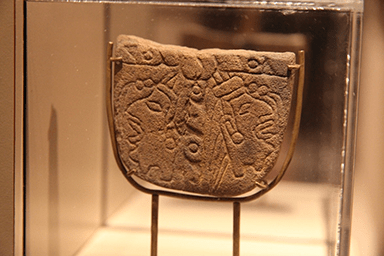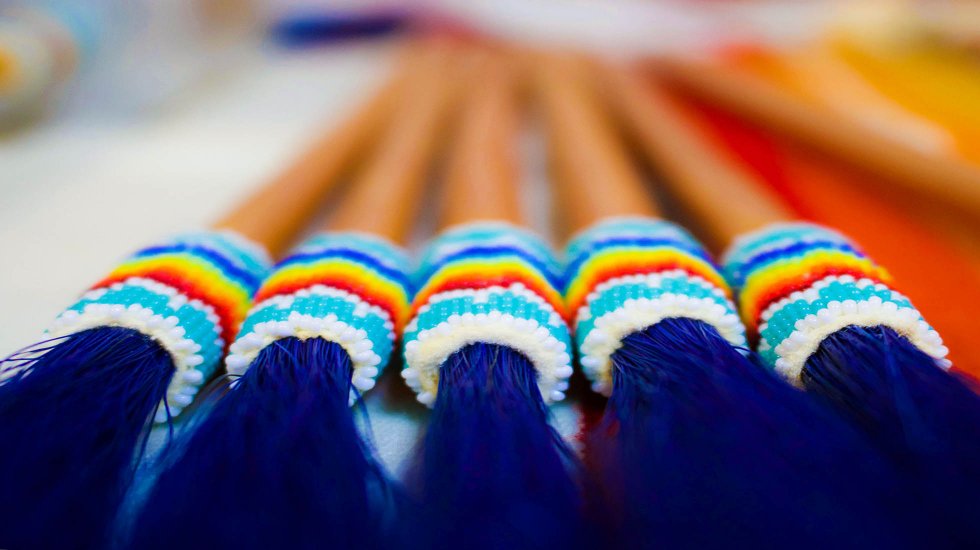Ethics and Commercialization

In keeping with Chief Standing Bear's Goals for the Osage Nation, the Historic Preservation Office is tasked with the investigation, identification, and preservation of Osage sites, burials, and any cultural artifacts that fall under the auspices of Osage, federal, or state law. To achieve this mission the Historic Preservation Office utilizes archaeologists that are trained specifically to recognize ancestral Osage culture in the archaeological record and to enforce compliance with preservation laws. Often Historic Preservation staff are asked to contribute to commercial appraisals or authentications of Osage prehistoric artifacts.
The Historic Preservation Office does not support commercializing ancestral Osage funerary or sacred material culture. The history of looting in the United States is well documented. Past and current looters have specifically targeted Osage/Mississippian sites in Missouri, Arkansas, and Illinois. Looters commonly seek out Osage/Mississippian burials, looking for high value funerary objects. The artifacts from these sites are often looted by criminals who use the proceeds to fund other crimes. These artifacts are then sold through several intermediaries before making their way to legitimate art galleries and museums, where brokers do not require documentation of when or where artifacts were excavated and often proceed with sales to the general public. It is a federal crime to traffic Native American human remains and cultural items obtained in violation of NAGPRA regulations (see exact language here). It is also a federal crime to loot archaeological sites on federal or tribal lands under ARPA, the Archaeological Resources Protection Act of 1979. The Historic Preservation Office regularly consults with museums and agencies to prevent looting and trafficking, but the private art sector rarely addresses tribal concerns and may intentionally profit from modern and past looting.
As stated by the Society for American Archaeology:
The Society for American Archaeology has long recognized that the buying and selling of objects out of archaeological context is contributing to the destruction of the archaeological record on the American continents and around the world. The commercialization of archaeological objects - their use as commodities to be exploited for personal enjoyment or profit - results in the destruction of archaeological sites and of contextual information that is essential to understanding the archaeological record. Archaeologists should therefore carefully weigh the benefits to scholarship of a project against the costs of potentially enhancing the commercial value of archaeological objects. Whenever possible they should discourage, and should themselves avoid, activities that enhance the commercial value of archaeological objects, especially objects that are not curated in public institutions, or readily available for scientific study, public interpretation, and display.
The Osage Nation Historic Preservation Office does not participate, support, or condone the commercialization of Osage funerary and/or sacred material culture. Therefore, the Historic Preservation Office does not respond to any requests to appraise or authenticate prehistoric artifacts intended for auction or sale.
- Click here to read more from the Association of American Indian Affairs on Private Collections and Sales of Native American Cultural Patrimony.
- Click here to read more about the Society of American Archaeology's Principles of Archaeological Ethics.
- Click here to read more about illegal looting in Osage territory in the Riverfront Times' article Tweakers N Diggers from 2010.
- Click here to read the National Congress of American Indian's 2019 resolution #REN-19-031 regarding Ethical Standards for Purchasing Indigenous Items for auctioneers and buyers.


